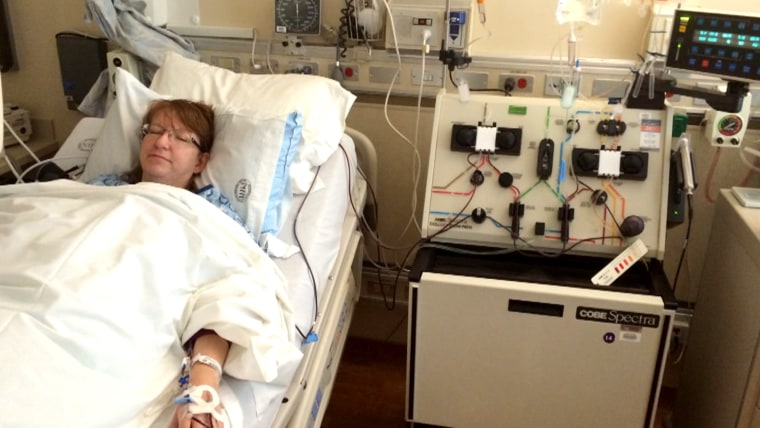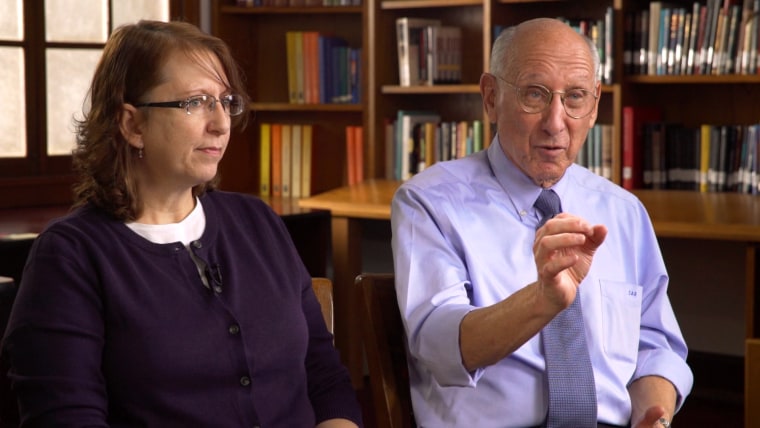February is National Cancer Prevention Month. It's a disease that more than a million Americans are diagnosed with each year, according to the National Cancer Institute. This morning in our special series "War on Cancer," TODAY takes a look at the latest advances in the fight against this deadly disease.
Celine Ryan, a 51-year-old engineer and mother of five, was diagnosed with stage 4 colon cancer three years ago. After undergoing surgery, radiation and chemotherapy, doctors discovered cancer in her lungs — seven tumors that threatened her life.
Ryan, who lives in Michigan, read about a clinical trial using gene therapy at the National Cancer Institute in Bethesda, Maryland, and decided to apply. The trial is headed up by Dr. Steven Rosenberg, a leading researcher in immunotherapy at the institute. She decided the treatment would be a birthday present to herself.
Getting into the trial wasn't simple because her tumors, though numerous, weren't large enough for the form of treatment being tested, but she was finally accepted in March 2015.
RELATED: Keytruda, the drug that helped Jimmy Carter, also can stop lung cancer
The treatment involves removing cells from a tumor — your body's own cancer-fighting cells — multiplying them by billions in a lab, then returning them back to your body to fight the tumor.

After spending a month in the hospital and letting the treatment run its course, six of her seven tumors had completely disappeared. The last tumor started to grow eight or nine months later and the decision was to remove it through surgery.
RELATED: 10 things I wish I knew before I was diagnosed with breast cancer
The treatment isn't widely available now, and not all patients experience the positive results Ryan had.
"Many have not responded," Rosenberg said. "But from every patient that we treat, whether... their cancers go away or not, we learn something."

Thanks to Ryan's unusual genetic makeup, researchers were able to identify how to attack the mutation that causes common cancers. This experimental treatment may not be the solution for everyone, but for Ryan, it's meant ten months of being cancer-free.
"We can do, and are planning to do, that kind of gene therapy using the exact receptor we got from Celine's cells to treat other people," Rosenberg explained.